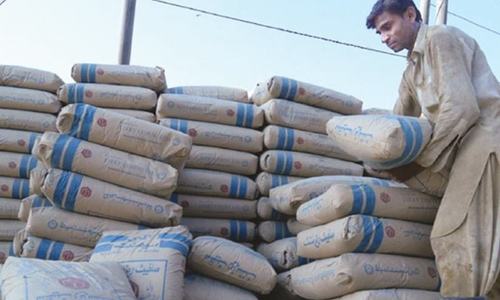KARACHI: Cement industry is the single largest source of carbon dioxide (CO2) emissions in Pakistan, according to a research study released on Friday.
Prepared by the Centre for Research on Energy and Clean Air (CREA), an independent European environmental think tank, the study shows that CO2 emissions from the consumption of fossil fuels such as oil, gas and coal in Pakistan have more than doubled in the last two decades.
Speaking at the virtual launch of the study organised jointly by CREA and the Alliance for Climate Justice and Clean Energy (ACJCE), CREA Lead Analyst Lauri Myllyvirta said the power sector is responsible for over one-quarter of the total emissions while fossil fuels are responsible for two-thirds of power generation.
He added that this share has remained constant over the past decade, which indicates that there is little progress in moving towards clean power generation. He said the industrial sector — cement makers in particular — is the largest contributor to carbon emissions and is responsible for the one-third increase over the past decade.
Lahore University of Management Sciences faculty Dr Sanval Nasim was of the view that air pollution is often conflated with climate change. Although these issues overlap to some extent, they differ enough to warrant separate policies, he noted.
Dr Nasim added that in cities such as Lahore, vehicles emit particulate matter 2.5 or PM2.5, an egregious pollutant consisting of fine inhalable particles. “As climate change action takes a foothold, policymakers can consider incentive-based approaches such as emission charges and carbon emission trading as viable alternatives to mitigate the impact of greenhouse gases,” he said.
The study shows coal and natural gas contributed more than 90 per cent to the power sector’s CO2 emissions in 2019-20, with coal contributing the highest share, followed by gas and oil.
Natural gas contributes most to the CO2 emissions from fossil fuel consumption with a share of more than 40pc in 2018-19. Power, household and industrial sectors are the biggest contributors to the CO2 emissions from gas consumption followed by the fertiliser sector.
Coal, which contributed less than 10pc to overall fossil fuel-based energy until 2013-14, was responsible for 19pc of the emissions in 2018-19, the study says. Emissions from coal saw the highest growth rate in the recent past. They increased more than five-fold in the past two decades, followed by gas that showed a more than two-fold increase and oil with an approximately 50pc increase in CO2 emissions.
The transportation sector is the single largest contributor to oil-related CO2 emissions, which indicates the need for moving away from a highly fossil fuel-intensive transport sector to more sustainable modes for mobility.
Published in Dawn, July 31st, 2021















































